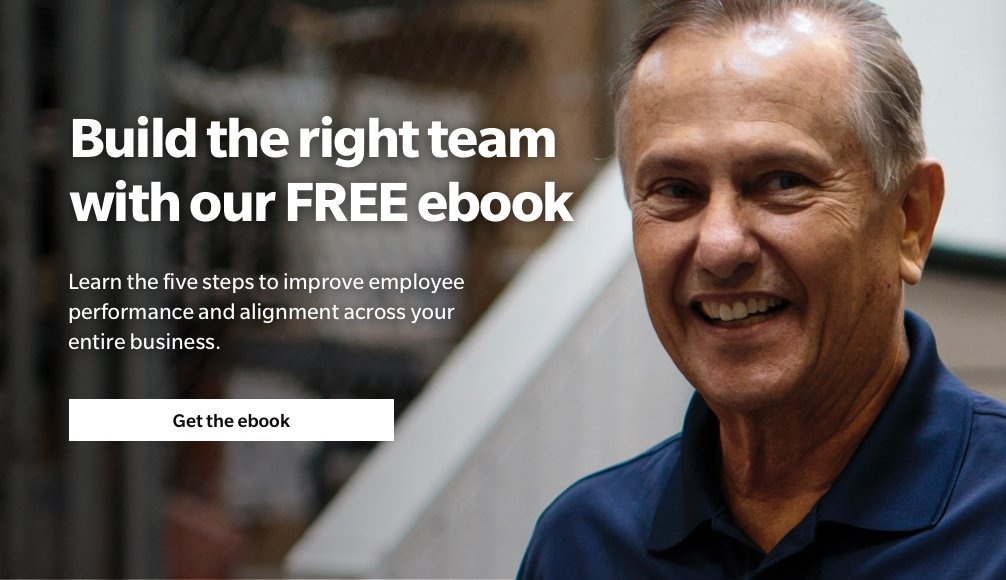As a business coach, I have a unique view into the daily frustrations that occupy most business owners. And more often than not, when I ask a new client what’s overwhelming them most in their business, their focus immediately turns to their employees.
I hear things like:
I tell them to do one thing, and they do something else completely. It’s like they’re going against me on purpose.
If my employees could just carry out the orders the same way every time, we wouldn’t be losing so much business.
I don’t think they’re working half the time, but I can’t be around to watch them every minute.
When your employees seem to be drifting or intentionally not doing something the way you want them to, it’s easy to assume it’s because they don’t care as much as you do. However, what’s more likely is that they don’t clearly understand your expectations or standards, or that you just don’t have the right systems in place to support them. And this is especially true during during an unprecedented shift in economic trends and workplace culture.
The truth is, problems with team performance all lead back to you—the leader of the business—because you get from employees what you give to them. So, how can you lead your team to perform the way that you want them to?
Simply put, the journey starts with you. But that same process quickly requires you to include your employees, collectively and individually. This should be done in a way that shows them how much you value their contributions and support their professional development goals.
Here’s the five-step path to building your dream team:
1. Identify and define your company values
Your company values aren’t simply pleasant, inspirational messages to work by—they’re a critical element of your leadership system. They stem from your deepest personal beliefs and hopes for your business, and form the basis for how everyone in your company should act. Defined company values inspire your people, and allow them to understand who you are and what you collectively represent as a company. It also helps them see themselves within your business, so that they can come into it sharing the assumptions, values and beliefs that you hold central to your way we do it here.
2. Have a vision for your company culture
The fact is, many business owners don’t truly understand what company culture is, how it’s related to your business, how it's an extension of company values, or why it’s important. Your company values create the foundation for your company's culture by establishing the framework for how your employees behave and relate with one another. In other words, your company culture is your values in action. Craft it with intention so the wrong culture doesn’t develop by accident.
3. Create systems and standards that define your way we do it here
No matter how much your team shares your company values, no one who works for you will ever do or think about things exactly the way you do. And that’s okay. The unique contributions of each employee can be a true gift to your business. But in order to capture the spirit that you want your team to embody, you need to identify what business processes and principles are non-negotiable. That’s where systems and standards come in—they’re the elements of substance and structure that come together as your way we do it here. And the success of your company depends on everyone owning that way, unapologetically.
4. Choose the right people
Making the right hires is undoubtedly one of the hardest parts of owning a business. The truth is, you may often hire people for what they can do (previous experience, skills, etc.) but fire them for who they are (values, temperament, work ethic, personality). Business owners get caught in this trap time and time again. Without defined systems and processes of the way you do it, people will bring in habits and ways of working that they developed with previous employers. And without clear values and standards, one bad apple can disrupt the team culture and bring everyone down. So, spending time on a thorough and value-based recruiting and hiring process is essential.
5. Develop a high-performance environment
If you want your team to bring the best to your organization, you need to encourage and inspire them. That means connecting with, understanding and mentoring each employee. You can do that by creating (and signing) Position Agreements for each employee so that they understand what they’re responsible for in their role. Additionally, you can do this by ensuring that you or your managers are conducting regular Employee Development Meetings with each reporting employee, so that they have a space to work through problems and focus on professional development.
Developing a results-driven team takes time, and often the process can be disruptive—so disruptive that some employees may not stick with you on the adventure. That’s okay. If you’re having chronic employee issues, it’s likely that not everyone should join you. But this is a necessary step to building a business where your employees do things the way you want them done, so that you can step away knowing that your own way we do things here will continue, even without you constantly at the helm.




Comments